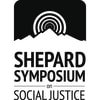SYMPOSIUM ACCESSIBILITY
We are committed to an open, accessible, and sustainable symposium. Please look over the accessibility features we have put in place, and contact us with any questions, concerns, and ideas for improvement. You can reach us at [email protected] . We also acknowledge that some elements of access are contextual and relational, and require the participation and cooperation of participants and presenters. Please know that we are doing our best to adapt accessibility efforts our 2023 symposium.
In-PERSON ACCESS
Please visit the Location & Travel page for information regarding parking and transportation.
For campus accessibility, please go to this interactive campus map.
Shepard Symposium Chapter 1 (Spring 2023) events will be held at the following locations:
For campus accessibility, please go to this interactive campus map.
Shepard Symposium Chapter 1 (Spring 2023) events will be held at the following locations:
- The Wyoming Student Union - please click here for accessibility information regarding the Wyoming Student Union
- The University of Wyoming Arts & Sciences Auditorium (A&S) – please click here for accessibility information regarding Arts & Sciences. Please Note: for the keynote event, all bathrooms will be gender neutral during the engagement.
- The Laramie Plains Civic Center - there is a ramp to the building on the east side of the building. The Gryphon Theater has ramps and accessible seating. The bathrooms do meet code but may still be difficult to access. Please click here to contact the building owners for additional accessibility information.
- ASL interpreters will be provided at the keynote event on April 19th and the awards banquet on April 20th. Live Transcription will be provided at the awards banquet on April 20th.
Please contact Disability Support Services (DSS) [email protected] with specific disability accommodation requests.
ACCESSIBILITY GUIDELINES AND IDEAS FOR PRESENTERS:
- Announce when the presentation begins and ends
- At the start of the presentation, introduce the interpreter(s) and other service providers
- Begin with an overview of the presentation and end with a summary of key points
- Keep the presentation clear, simple, concise, and organized
- Clearly describe and modify any writing, reading or other activities during the presentation so people with visual, cognitive, or motor impairments can fully and equally participate
- Verbally describe visual gestures and points of reference
- Use simple language; avoid acronyms, jargon, and idioms (or clarify/define them)
- Always face the audience; avoid covering your mouth when speaking
- Try to ensure your microphone is picking up your voice well. Consider using a headphone with a built-in microphone to help with this
- Speak clearly and at a pace that allows interpreters and/or captioners and/or AI live transcription to convey information accurately
- Make text and visuals large enough to be read. We suggest starting at a minimum size 20 font. Make sure there is good contrast color between presentation background and text.
- Verbally describe all visual materials (e.g., slides, charts, overheads, videos) in detail. Please ensure that images in google slide presentations and PowerPoint have alt text
- Use multiple communication methods for different learning styles (verbal information, pictures and diagrams, text, auditory)
- Provide a verbal overview of information in textual materials
- Provide audio descriptions for all videos (i.e., describe facial expressions, body language, actions, and costumes); use captions on videos when available
- Instruct participants to speak one at a time, and to speak clearly
Prior to the Presentation: If you want to share materials, please consider these suggestions:- When reading directly from text, provide an advanced digital copy and pause slightly when interjecting information not in the text
- Make electronic versions of materials available in plain text, rich text, or Microsoft Word (and if materials are provided in PDF format, make certain it is a readable PDF)
- Be willing to provide materials (papers, PowerPoints, agendas, slides) in alternative formats upon request (e.g., large print, Braille, audiotapes, computer disks, DVDs)
- Provide a written description of all images
- Please send us any materials you plan to share during the presentation prior to the conference, and we will make them available online. This will allow all conference attendees, including persons with disabilities, as well as interpreters and other support personnel, to familiarize themselves with the materials or access it in multiple formats during the conference.
Email materials to: [email protected]
